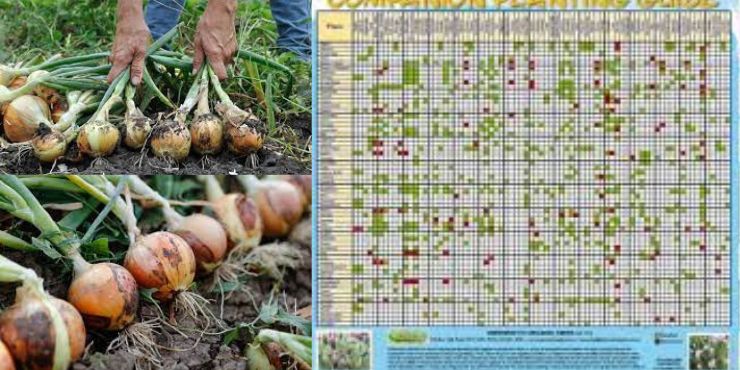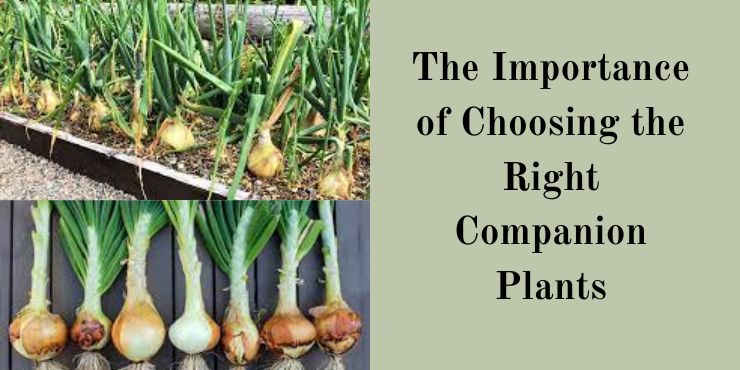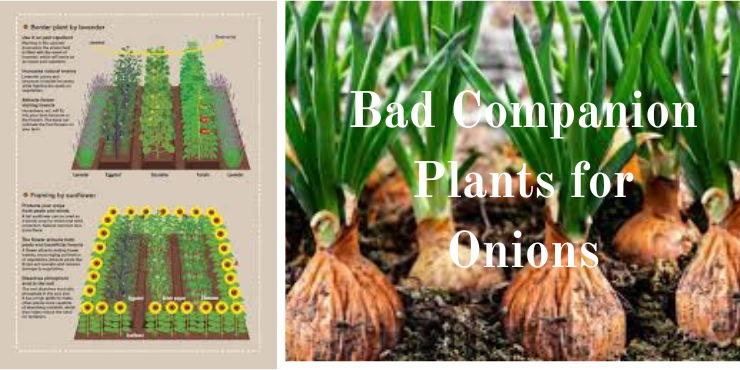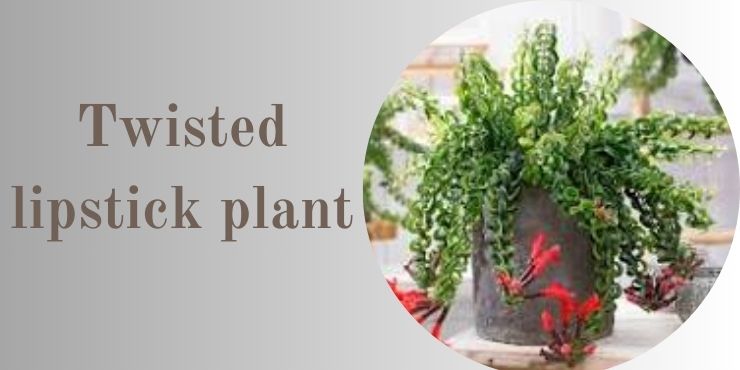Introduction
Companion Plants, When it comes to gardening, making the right plant choices can be the difference between a thriving garden and one plagued by problems. Onions are a versatile and popular vegetable, but like all plants, they have their own set of preferences and dislikes. One crucial factor for successful onion cultivation is choosing the right companion plants. In this article, we’ll explore the world of bad companion plants for onions and why it’s essential to be selective in your garden planning.
What Are Companion Plants?

Companion plants are those that have a positive or negative influence on each other when grown in close proximity. Some plants, when paired together, can enhance growth, flavor, or pest control. However, some combinations can hinder each other’s development. This article focuses on the latter – bad companion plants for onions.
The Importance of Choosing the Right Companion Plants

Selecting suitable companion plants is an integral part of the practice of companion planting. It not only encourages healthier plants but also reduces the need for chemical pesticides and fertilizers. When onions are planted with the wrong companions, it can lead to stunted growth, poor flavor, and increased susceptibility to pests and diseases.
Bad Companion Plants for Onions
4.1 The Allium Family: Onions belong to the Allium family, which includes garlic, shallots, and leeks. Planting them alongside other members of this family can result in stunted growth and competition for nutrients so be careful.
4.2 Brassica Family: Plants in the Brassica family, such as broccoli, cabbage, and cauliflower, can inhibit onion growth. They release substances that stunt the development of onions and can make them more susceptible to pests. so be careful.
4.3 Legumes: Legumes like peas and beans can be problematic companions for onions. They have nitrogen-fixing abilities that may encourage excessive leaf growth in onions while reducing bulb development.
4.4 Nightshades: Tomatoes and peppers, which are part of the nightshade family, are not good companions for onions. They can overshadow onions, leading to reduced sunlight and hinder their growth.
4.5 Root Crops: Root crops like carrots and beets may compete with onions for space and nutrients, resulting in reduced yields for both crops.
Why These Plants Don’t Go Well with Onions
Bad companion plants for onions interfere with their growth due to factors such as competition for resources, different nutrient requirements, and allelopathy – the release of chemicals that inhibit the growth of neighboring plants. Onions need sufficient space, sunlight, and specific soil conditions to thrive, and incompatible companions can disrupt these requirements.
How to Deal with Bad Companions
To avoid the negative impact of bad companion plants for onions, consider creating separate garden beds or planting onions in containers. This way, you can control their growing environment and reduce the likelihood of interference from incompatible plants.
Companion Plants for Onions
Now that we’ve discussed the bad companions, let’s explore some excellent companions for onions. Plants like lettuce, spinach, and chamomile can enhance onion growth and flavor while helping deter pests.
Maximizing the Benefits of Companion Planting
Companion planting is a fascinating aspect of gardening that can improve the health and productivity of your garden. By selecting the right companions and avoiding bad ones, you can create a harmonious and bountiful garden space.
Conclusion
Choosing the right companion plants for onions is a critical step in ensuring a successful and productive garden. By understanding the bad companion plants and their potential pitfalls, you can make informed choices for a thriving garden.
Frequently Asked Questions (FAQs)
- What is companion planting?
- Companion planting is a gardening practice where certain plants are grown together to enhance each other’s growth, flavor, and pest control.
- Why are onions sensitive to their companions?
- Onions have specific growth requirements and can be negatively affected by plants that compete for resources or release growth-inhibiting chemicals.
- Can I still plant bad companions in my garden?
- You can, but it’s best to separate them from your onions to prevent interference.
- What are some good companion plants for onions?
- Lettuce, spinach, and chamomile are excellent companions for onions.
- How can I maximize the benefits of companion planting in my garden?
- Choose your companions wisely, maintain proper spacing, and monitor your garden’s health for the best results


